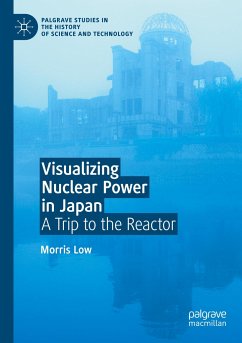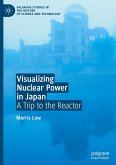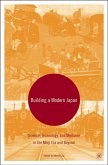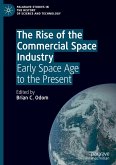This book explores how Japanese views of nuclear power were influenced not only by Hiroshima and Nagasaki but by government, business and media efforts to actively promote how it was a safe and integral part of Japan's future. The idea of "atoms for peace" and the importance of US-Japan relations were emphasized in exhibitions and in films. Despite the emergence of an anti-nuclear movement, the dream of civilian nuclear power and the "good atom" nevertheless prevailed and became more accepted. By the late 1950s, a school trip to see a reactor was becoming a reality for young Japanese, and major events such as the 1964 Tokyo Olympics and 1970 Osaka Expo seemed to reinforce the narrative that the Japanese people were destined for a future led by science and technology that was powered by the atom, a dream that was left in disarray after the Fukushima nuclear disaster in 2011.
"This book is an important contribution to the Anglophone literature. ... Low's monograph is informative, well researched, and a good resource for learning about Japan's rejection of nuclear weapons while still embracing nuclear energy." (Yuki Miyamoto, Technology and Culture, Vol. 63 (3), July, 2022)
"Visualizing Nuclear Power in Japan offers a compelling narrative that shows the rich potential of a visualapproach in the history of technology. ... Low notes that the story is still being written-an opportunity, then, for others to build on his fascinating work." (Ruselle Meade, Isis, Vol. 113 (1), March, 2022)
"The strength of the book is definitively its rich historical materialsand its evocative writing. For a work of history, the book reads almost like an ethnography. ... the book is too specialized to be of interest to undergraduate students, but it will definitely become a staple for scholars studying the aftermath of the 2011 Fukushima nuclear disaster. Inthat regard, the book contributes to the growing literature on nuclear propaganda, a subject that remains important and controversial." (Maxime Polleri, Metascience, Vol. 30 (1), 2021)
"Visualizing Nuclear Power in Japan offers a compelling narrative that shows the rich potential of a visualapproach in the history of technology. ... Low notes that the story is still being written-an opportunity, then, for others to build on his fascinating work." (Ruselle Meade, Isis, Vol. 113 (1), March, 2022)
"The strength of the book is definitively its rich historical materialsand its evocative writing. For a work of history, the book reads almost like an ethnography. ... the book is too specialized to be of interest to undergraduate students, but it will definitely become a staple for scholars studying the aftermath of the 2011 Fukushima nuclear disaster. Inthat regard, the book contributes to the growing literature on nuclear propaganda, a subject that remains important and controversial." (Maxime Polleri, Metascience, Vol. 30 (1), 2021)








